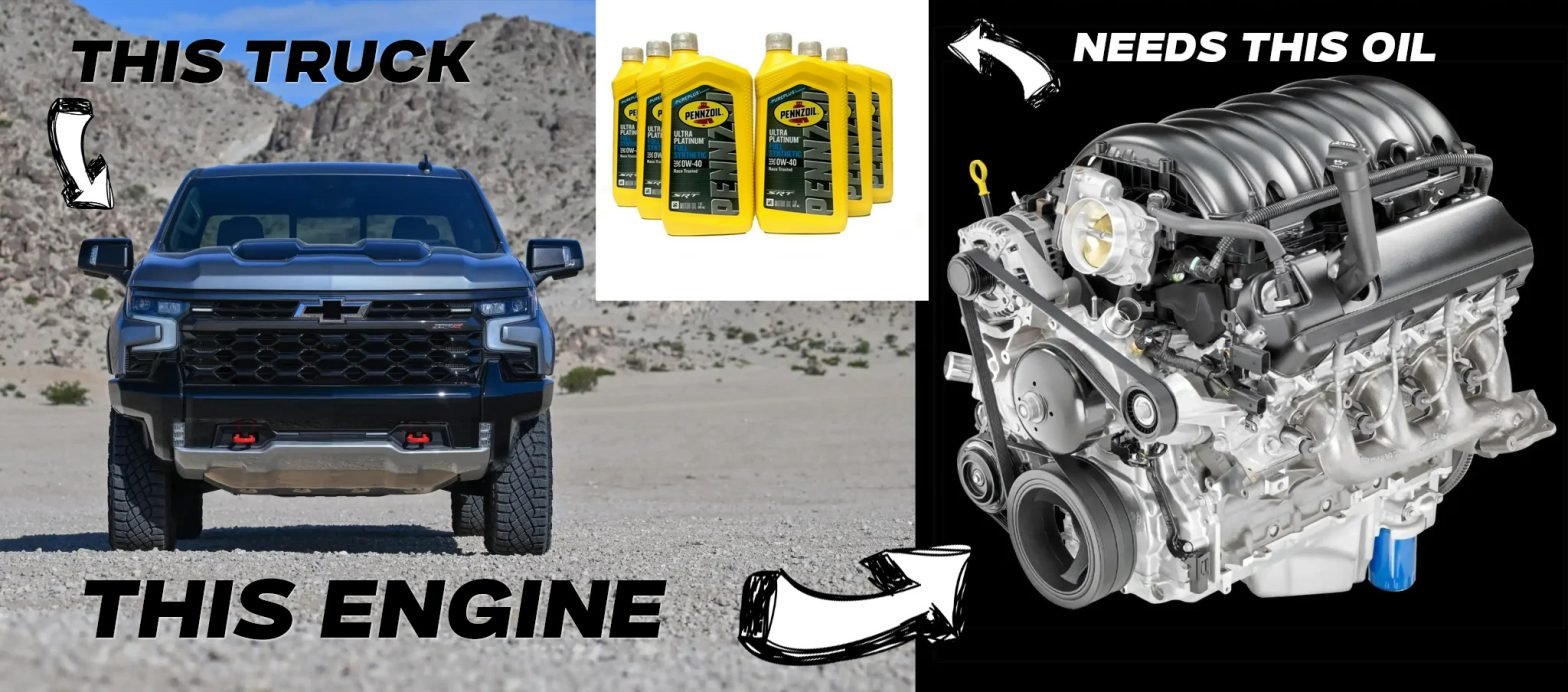If you own a late-model Silverado, Sierra, or full-size GM SUV with the 6.2L V8 under the hood, your vehicle may now be part of a large-scale safety recall. General Motors has just announced a sweeping campaign affecting a wide range of 2021–2024 trucks and SUVs, with dealers ordered to stop selling certain models immediately. The issue? A known problem that could lead to engine failure—and it’s not just theoretical anymore.
This development follows a formal NHTSA investigation we reported on back in January 2024 at GM-Trucks.com. At the time, we highlighted dozens of complaints pointing to sudden engine failures in vehicles equipped with the 6.2L L87 engine. That investigation has now resulted in an official recall—confirming what many owners and technicians had feared for months.
GM Program # N252494000
General Motors has decided that a defect which relates to motor vehicle safety may exist in certain 2021 – 2024 model year Cadillac Escalade and Escalade ESV, Chevrolet Silverado 1500, Suburban, and Tahoe, and GMC Sierra 1500, Yukon, and Yukon XL vehicles equipped with the 6.2L V8 gas engine (RPO L87). The connecting rod and/or crankshaft engine components in these vehicles may have manufacturing defects that can lead to engine damage and engine failure.
Safety Risk Description
If the engine fails during vehicle operation, the vehicle will lose propulsion, increasing the risk of a crash.
Repair Description
Dealers will inspect and, as necessary, repair or replace the engine. Vehicles that pass inspection will be provided a higher viscosity oil, which will also require a new oil fill cap, an oil filter replacement, and an owner’s manual insert.
From NHTSA Probe to Official Recall
The issue is now classified under NHTSA Campaign Number 25V274 and GM Safety Recall N252494000. GM has identified a defect in the connecting rod and/or crankshaft—critical internal components of the engine—which may have been manufactured with flaws. If these parts fail, the engine could seize or suddenly lose all power during operation, increasing the risk of a crash.
Affected Vehicles
The recall includes 2021–2024 model-year GM vehicles equipped with the 6.2L L87 gasoline V8 engine:
Cadillac: Escalade, Escalade ESV
Chevrolet: Silverado 1500, Suburban, Tahoe
GMC: Sierra 1500, Yukon, Yukon XL
What Are Connecting Rods and Crankshafts?
The crankshaft and connecting rods are core parts of how an internal combustion engine creates power.
The crankshaft is a rotating shaft deep inside the engine. It converts the up-and-down motion of the pistons into rotational motion that ultimately turns your wheels.
The connecting rods link the pistons to the crankshaft. They move up and down as the engine cycles through combustion.
If either part is weakened or defective, it can cause catastrophic engine failure. A cracked rod or worn crankshaft bearing can lead to the pistons locking up, which may stall the engine entirely.
In the case of this GM recall, inconsistencies in how these parts were machined or finished could cause premature wear or outright failure.

Stop Sale Order Issued
Any affected vehicle still on a dealer lot cannot be sold or delivered until it either passes an inspection or is repaired. GM has told dealers to immediately halt any sales, leases, or demo use of these vehicles pending inspection.
Inspection and Repair Process
Dealers will:
Scan for DTC P0016 (related to crankshaft/camshaft misalignment).
If the code is not present, the vehicle passes, and GM will:
Replace engine oil with 0W-40 full synthetic
Install a new oil fill cap and filter
Insert a supplement into the owner’s manual reflecting this change
If P0016 is present, the vehicle is quarantined and a repair or engine replacement may follow.
Why Switch from 0W-20 to 0W-40?
The original oil spec for the L87 engine was 0W-20, a low-viscosity oil designed to reduce drag and slightly improve fuel economy. However, 0W-40 is thicker at high temperatures, providing better protection under heavy load or in high-stress situations.
Here’s the basic difference:
| Oil Grade | Cold Start Viscosity (W rating) | Operating Temperature Viscosity |
|---|---|---|
| 0W-20 | Flows easily in cold temps | Thinner at engine temperature |
| 0W-40 | Same cold start performance | Thicker and more protective when hot |
Why it matters: The 6.2L L87 is a high-performance engine producing over 400 horsepower. Under towing or hard acceleration, internal parts like crankshaft bearings and rod journals experience high friction. The higher viscosity of 0W-40 oil offers better film strength, reducing metal-to-metal contact and helping prevent damage—especially in engines that may already be marginal due to manufacturing tolerance issues.
GM’s move to 0W-40 aligns with similar specs in the LT1 and LT4 engines used in Camaros and Corvettes, which also rely on higher-viscosity oils for durability.
Community Reactions
On forums like Reddit and the GM-Trucks.com Forum, and the GM-Trucks.com Silverado/Sierra 1500 Facebook group, owner reactions have been passionate and sharply divided:
Some believe the engine design should have required 0W-40 from day one.
Others accuse GM of attempting to mask deeper issues by issuing a late oil change mandate.
Several owners who’ve recently had their vehicles serviced with 0W-20 are now questioning the long-term health of their engines.
There’s also concern about how GM will decide which engines get replaced and whether vehicles just outside warranty coverage will be considered.
What You Should Do
If you drive a 2021–2024 GM truck or SUV with the 6.2L L87 engine:
Check your VIN using General Motors recall lookup website or your brand’s mobile app.
Schedule service to have the recall inspection performed once parts and procedures are fully available.
Make sure your next oil change uses 0W-40, and ask for the updated oil cap and manual insert.
Keep records of any engine-related complaints, and report any performance issues early to your dealer.
Stay Updated
We will continue monitoring how GM handles this recall and whether further updates or expanded recalls follow. For the latest coverage, technical deep-dives, and owner feedback, visit GM-Trucks.com and follow along in our Silverado/Sierra Facebook group.

